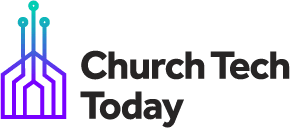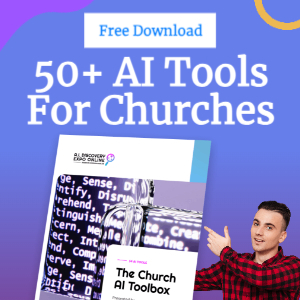Table of Contents: Why You Need A Church Staff Policy On AI
- Understanding AI and Its Benefits for Churches
- Developing a Church Staff Policy for AI
- Ensure Compliance With Laws and Regulations
- Training Church Staff on AI Use
- FAQs in Relation to Why Church Staff Policy for Ai
- Final Thoughts

Understanding AI and Its Benefits for Churches
AI, or Artificial Intelligence, and generative AI, in particular, is a technology that is becoming increasingly popular in churches. Generative AI is basically a type of machine learning technology that can absorb data and generate output in the form of images, audio, video, or text. This makes it possible for churches to automate some of their tasks, such as notetaking during meetings, drafting documents, creating content, and more. It also can help with other church tasks like data analysis and providing better support and responses to congregational needs. AI can also be utilized to connect staff and members of the church better. This article will explore how an AI policy for staff and volunteers can be advantageous for churches and how pastors can best use it to meet their requirements.
One of the primary benefits of using AI in a church setting is increased efficiency. By scaling mundane tasks like analyzing data in a Google Sheet, pastors are able to save time and resources that would otherwise have been spent on manual labor. This allows them to focus more energy on other aspects of running a successful church ministry, like pastoral care activities.
Another advantage of utilizing artificial intelligence is improved communication within the church community. Generative AI can help create tailored communications for members based on their interests, preferences, and needs. This allows the church to get a better understanding of individuals’ needs and provide more meaningful services.
Finally, AI can also help churches make use of predictive analytics. By analyzing data collected from various sources, such as website traffic, social media engagement patterns, or attendance records, pastors can gain strategic insights into the needs of their congregation. This can help them make more informed decisions about how to serve their members best and invest resources effectively.
By leveraging AI, churches can gain access to valuable insights into their operations, which may not have been available through traditional methods. AI-based analytics can offer churches a way to make decisions that are not just based on intuition or guesswork but instead informed by data.
Understanding AI and its benefits for churches can help pastors streamline their workloads, improve efficiency, and increase productivity. One of the best ways to help refine your position on various issues related to AI is to find communities like AiForChurchLeaders.com that are intentional in facilitating discussion among peer church leaders. This lets you learn and process your developing thoughts and positions on AI in meaningful ways.
Developing a Church Staff Policy for AI
As churches increasingly adopt new technologies, generative AI is becoming an invaluable asset for many church leaders to serve their congregations better and gain deeper insight into how the church can offer better care and support for their community. AI-generated content, tools, and systems can help pastors better serve their congregations and provide greater insight into the spiritual needs of their members. When it comes to employing AI in a church context, moral considerations should be taken into consideration. In order to ensure that your church is making responsible use of AI technology, you should seriously consider developing a comprehensive staff policy outlining the appropriate use of AI by both staff and volunteer church leaders.
When creating a staff policy for the use of AI in your organization, it’s important to consider both moral agency and public policy issues. The initial step is to distinguish which ministry departments and teams will be influenced by the utilization of AI innovation—like sermon planning, small group content production, email writing assistance, etc. —and afterward devise guidelines for how these methods ought to be managed with regard to ethics, transparency, attribution, and other dynamics. For example, if you plan on using AI tools like ChatGPT or Jasper AI to assist with ai-generated sermon preparation, you may want to identify specific tools or processes so that the AI can be trained with uploaded documents and datasets which define evangelical values to abide by or prohibit certain topics from being addressed by the system altogether. Or provide a checklist that helps staff who use AI to ensure some level of evaluation that the content they generate meets the church leadership's standards.
Before implementing any AI systems, staff must be trained on proper usage protocols. This includes educating them on data security measures to ensure confidential information remains secure while still allowing access only when necessary; verifying accuracy when entering data; recognizing how decisions made through automated systems may affect people's lives; and observing any potential biases created by algorithms used in conjunction with machine learning models employed within the organization's operations.
Ethical and moral considerations are important regarding generative AI. For example, decision-making informed by generative AI may not be ideal since AI outputs are based on potentially biased data that conflicts with Biblical worldviews, such as what is right and wrong vs what is accepted in business, when counseling attendees on workplace conflicts, etc.
For example, there are ethical implications that may arise from using AI in church settings, like facial recognition software to monitor attendance at events without members' knowledge or consent – something which could raise questions around privacy rights and trustworthiness within congregations if left unchecked by church leadership teams. It's essential that all stakeholders understand these issues before implementing any new technologies into their processes so they can ensure that everyone involved feels comfortable with the decisions being made regarding data collection and usage practices within their congregation. Separate but related, attribution and transparency about the usage of AI tools is another topic worth defining for staff. Many churches are increasingly using artificial intelligence (AI) and machine learning (ML) to help automate tasks and drive efficiency in operations, but it's important to make sure that the systems used are ethical, transparent, and compliant with the intentions of the leadership of the church. A clear description of how AI may be used should be provided so that staff, as well as church members, understand what is happening and why. This understanding can help to build trust in the use of AI and create a more efficient workflow for tasks such as data collection, analysis, and reporting.
Separate but related, it is important for churches to commit resources to build up their digital infrastructure so that their congregations are able to take full advantage of the new technology available.
A staff policy should consider the ethical implications of decision-making regarding how data is used and interpreted in order to ensure that they are not creating an unjust or biased environment.
Finally, there needs to be a system of accountability so that any issues or discrepancies can be addressed quickly and efficiently. In addition, ministries should be mindful of the potential for AI to cause harm and take steps to mitigate any risks, including conducting regular audits and incorporating ethical principles into decision-making. By taking a proactive approach and involving stakeholders in developing guidelines from the beginning, organizations can ensure that their AI solutions are beneficial and ethical.

Policies Should Consider Liabilities AI Can Introduce
Churches may be exposed to increased risk of liability when it comes to staff inputting confidential information related to attendees since many AI platforms currently incorporate all interactions into the larger training data. For example, OpenAI, the maker of ChatGPT and Dall-E states on their website, “Sharing your data with us not only helps our models become more accurate and better at solving your specific problem, it also helps improve their general capabilities and safety. When you use our non-API consumer services ChatGPT or DALL-E, we may use the data you provide us to improve our models.”
By taking steps to provide guidance to staff on what is acceptable and not regarding AI usage now while developing a comprehensive staff policy around the use of artificial intelligence within your organization’s walls, you can help ensure responsible utilization of this powerful technology going forward. This will give you peace of mind knowing that everyone involved understands exactly what is expected from them whenever they interact with any type of AI service associated with day-to-day operations at your church.
Ensure Compliance With Laws and Regulations
When it comes to using AI for ministry work, pastors must ensure that their policies comply with the relevant laws and regulations. This can be a complex process, but one that is essential in order to protect both the church and its members from potential legal issues.
The first step in creating an effective policy regarding this issue is to understand what laws and regulations are applicable. Depending on where your church is located, this could include federal or state laws related to privacy, data security, copyright infringement, or other areas of concern. It’s important to research these thoroughly so you know exactly what needs to be included in your policy.
Once you have identified all applicable laws and regulations, it’s time to create a comprehensive policy document outlining how they will be enforced within your organization. This should cover everything from the acceptable use of AI-based tools by staff and volunteers (such as ensuring any generated content meets copyright standards) to data protection protocols (including encryption methods).
The document should also specify who has responsibility for monitoring compliance with the policy – such as a designated IT team member – as well as the consequences for non-compliance.
Doing so will help protect both their churches and members from potential legal issues while still allowing them access to cutting-edge technology solutions that can enhance ministry operations significantly.
Training Church Staff on AI Use
Church staff need to be trained on the proper use of generative artificial intelligence and associated AI tools. Staff will benefit from exposure to various use case examples of integrating generative AI into church workflows. It would also be beneficial to lead a discourse on ethical quandaries when utilizing AI in church contexts.
But first, pastors should understand the basics of AI technology and its capabilities. AI has the capacity to execute undertakings that would typically necessitate human control or judgment. One of the most efficient ways to get up to speed is to join the AiForChurchLeaders.com community of pastors and church leaders. Subscribing to and reading ChurchTechToday.com is another useful merthod to become better informed about generative AI and its potential benefits and risks to the church in your ministry work.
FAQs You May Encounter Regarding AI And Ministry Work
What does Christianity say about AI?
Christianity does not have a single, unified view on Artificial Intelligence (AI). Some Christian theologians and leaders will argue that AI has the potential to be used for good purposes, such as providing assistance with medical diagnosis or improving education. Technology, on a plain level, is not inherently bad. The other side will offer caution in using AI due to its capacity for manipulation, bias, and control. Ultimately, it is up to the church leadership team to decide how they personally perceive AI based on their spiritual beliefs. In this area, one of the strongest suggestions is to get into conversation with other peer Christian leaders and pastors so that you can use each other as sounding boards while you develop your theological positions on the innovation we are now experiencing.
Will AI replace church workers?
According to an MIT and Boston University report, AI is expected to replace as many as two million manufacturing workers by 2025. But, AI will not replace workers wholesale in the church world. There are industries and specific types of jobs that are definitely at risk across various industries. Artificial Intelligence (AI) is a tool that can be used to automate certain processes and tasks, but it cannot completely take over the entire role of human employees in a ministry organization. AI can help to reduce labor costs, but its main benefit is to enhance existing operations instead of completely substituting them. Human creativity and intuition are still essential components in ministry, which means that there will always be a need for humans in a church work setting.
What should be expected of church leaders regarding AI policy formation?
Pastors have a unique responsibility to ensure that their church runs smoothly and effectively. As such, it is important for them to be knowledgeable about the technology solutions available in order to serve their congregation best. By understanding AI technology's pros and cons, just like how websites, texting, church management software, etc., can help improve operations within the church or introduce risks and concerns, pastors are better equipped to provide guidance on how they should be used appropriately. By having access to specific resources like clear policy guidelines, tailored for staff and volunteers regarding AI usage, team members can rapidly gain confidence when evaluating various AI options accessible to them, so that they can most appropriately enhance their work.
Final Thoughts
In conclusion, churches definitely need to consider the use of AI in their ministry work and develop a church staff policy for AI that outlines expectations, training protocols, and best practices. By understanding the potential benefits of using AI responsibly while also taking into account any ethical concerns related to its implementation, pastors can create an effective church staff policy for AI that will help ensure safe and successful use by both volunteers and employees.
Once a policy has been created, it must be communicated clearly throughout the organization so everyone understands their responsibilities when using AI technology for ministry work.
This may involve holding training sessions or workshops where key points can be discussed in detail, providing written materials such as handouts or online resources, or even just making sure everyone knows who they need to contact if they have questions about compliance requirements down the line.
Where can you connect with other church leaders walking through similar questions about policy development? One strong suggestion is to join the AiForChurchLeaders.com group so you can discuss how to implement effective church staff policies regarding AI, or check out ChurchtechToday.com which is increasingly publishing tutorials and guides regarding generative AI, designed to help pastors maximize the potential of these technology solutions. Take control of your tech today!












